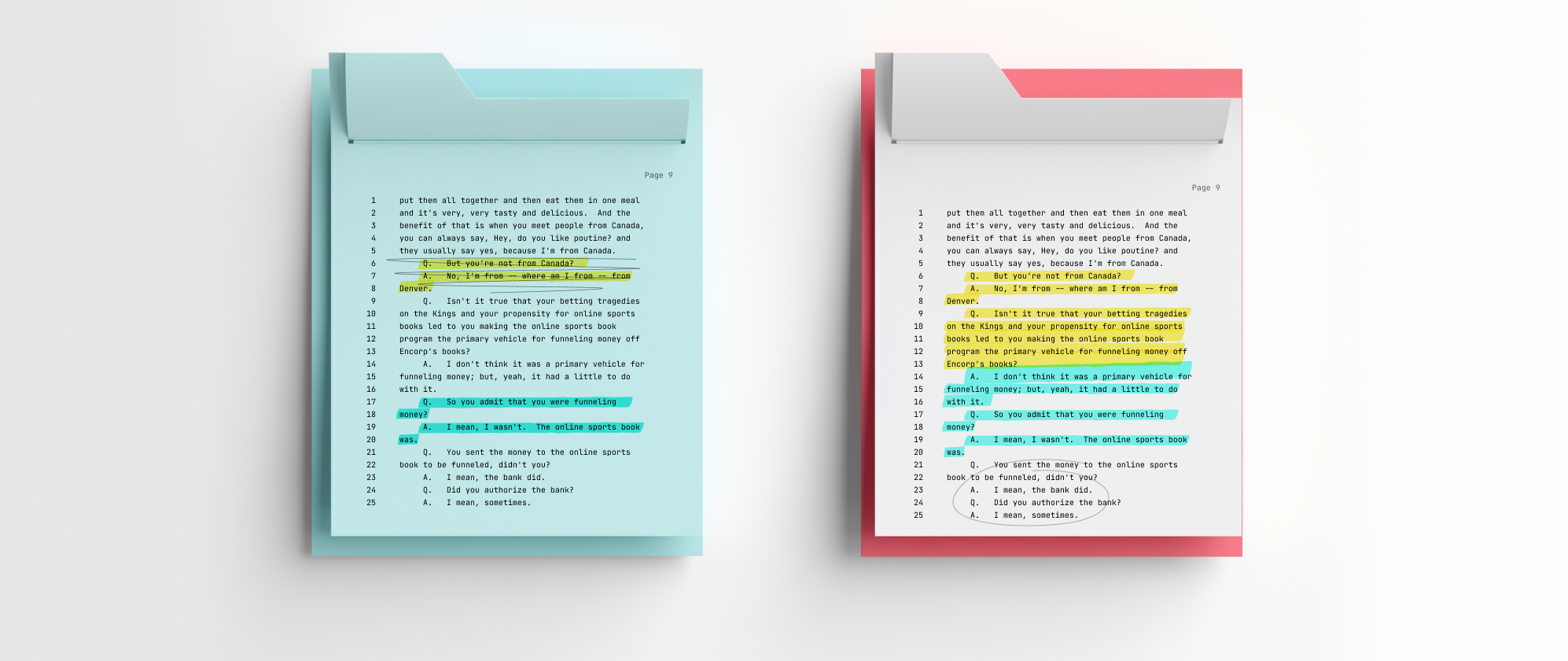
Depositions are a cornerstone of the discovery process and a powerful tool in the hands of an adept litigator. It can expose weaknesses, unravel falsehoods and fortify your legal strategy like nothing else. How well-prepared you are to take a deposition could potentially make or break your case. We put together some valuable tips for mastering this stage with confidence and finesse.
1. Have a Clear Objective
Understand the purpose of each deposition you take. Are you trying to corroborate facts? Expose contradictions? Or simply gather information? Defining your objective structures your approach and guides the formulation of your questions.
2. Review and research
Gather in-depth knowledge about the case, review case documents, discovery materials and understand the role of the deponent in the circumstance in question. If possible, it would be prudent to research the deponent's testimony in other litigations, professional background, as well as potential biases or conflicts of interest if any. Using a litigation management platform is essential to identify key documents that can serve as exhibits, which will help you build your outline.
3. Plan Your Questioning
Formulate an outline for your questioning sequence. Start with basic questions to set the tone, gradually steering towards more complex or controversial topics. Remember to phrase questions clearly and concisely, avoiding jargon or legalese as much as possible. Make sure to incorporate potential exhibits into your outline, as well as citations to the testimony of other deponents in the case. With a transcript management platform, you can easily grab testimony excerpts along with citations.
4. Anticipate Answers
While you are formulating questions, it is also important to anticipate the possible responses from the deponent. Make sure that your outline includes potential rebuttal or follow-up questions based on potential responses. It is important to be prepared for unexpected revelations.
5. Maintain Professional Etiquette
Be respectful, calm and patient at every step of the deposition. Your deposition demeanor can have an impact on the deponent and aid in creating an environment where the deponent feels comfortable giving information. You should assume that anything that happens on the record is fair game at trial, where it can be played for the judge and jury in video form. (More on that in our post on The Importance of Video Depositions).
6. Use Exhibits
Evidentiary documents in the case serve a critical purpose in a deposition. Not only can these exhibits help in extracting detailed information, but they can often prompt memory recall in the deponent, which can lead to more influential testimonies. Document exhibits also serve as the best way to rebut inaccurate testimony and keep a deponent honest. Similarly, the use of testimony by others in the case can be an effective method of rebuttal as well.
7. Practice Active Listening
Listen closely to answers, as they often provide a cue for your next question. A surprise admittance or contradiction could potentially flip the case in your favor, but you can only catch it if you listen with full focus.
8. Keep the Record Clear
Ensure the record of the deposition stays clean and clear. Avoid talking over the deponent or making non-verbal gestures. Remember, the deposition transcript and video will not capture your gestures, and crosstalk can make the transcript difficult to read.
9. Be Prepared for Objections
Familiarize yourself with common objections in deposition and appropriate responses for them. Knowing how to handle objections can keep the process smooth and the environment professional.
10. Preserve Issues for Trial
Lastly, if an issue arises that cannot be resolved during the deposition, make sure to make a clear record of your position and preserve the issue for trial.
Conclusion
Taking a deposition is no walk in the park. It needs meticulous preparation, a clear strategy and acute listening skills. But with these tips up your sleeve, you can step into the deposition room with the confidence to navigate even the trickiest testimonies and come out with the information you need to fortify your case strategy. After all, in the arena of litigation, preparation is everything.
[This is an AI-human collaboration. Let us know if you found it helpful.]

